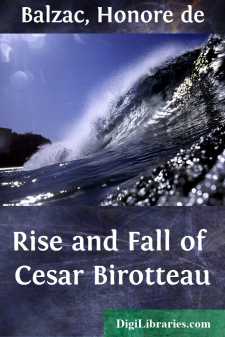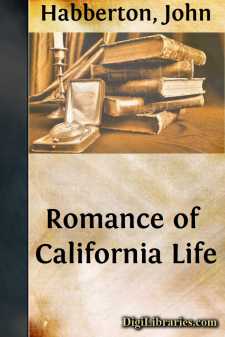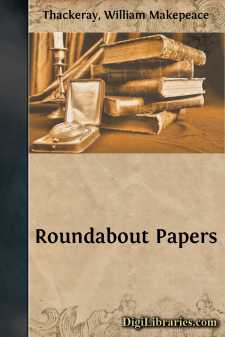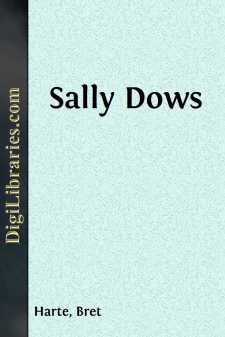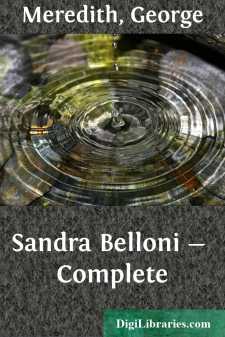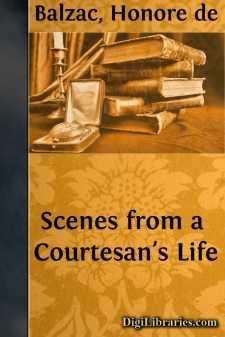Literary Collections
- American 84
- Ancient, Classical & Medieval 14
- Asian 1
- Australian & Oceanian 1
- Canadian 55
- Continental European 121
- English, Irish, Scottish, Welsh 179
- Essays 160
- General 24
- Letters 46
- Middle Eastern 1
Literary Collections Books
Sort by:
by:
Bernard Shaw
FOREWORD A revolutionist is one who desires to discard the existing social order and try another. The constitution of England is revolutionary. To a Russian or Anglo-Indian bureaucrat, a general election is as much a revolution as a referendum or plebiscite in which the people fight instead of voting. The French Revolution overthrew one set of rulers and substituted another with different interests and...
more...
by:
George Meredith
CHAPTER I Remains of our good yeomanry blood will be found in Kent, developing stiff, solid, unobtrusive men, and very personable women. The distinction survives there between Kentish women and women of Kent, as a true South-eastern dame will let you know, if it is her fortune to belong to that favoured portion of the county where the great battle was fought, in which the gentler sex performed manful...
more...
by:
Honore de Balzac
During winter nights noise never ceases in the Rue Saint-Honore except for a short interval. Kitchen-gardeners carrying their produce to market continue the stir of carriages returning from theatres and balls. Near the middle of this sustained pause in the grand symphony of Parisian uproar, which occurs about one o'clock in the morning, the wife of Monsieur Cesar Birotteau, a perfumer established...
more...
by:
John Habberton
THE NEW SHERIFF OF BUNKER COUNTY. He suited the natives exactly. What they would have done had he not been available, they shuddered to contemplate. The county was so new a one that but three men had occupied the sheriff's office before Charley Mansell was elected. Of the three, the first had not collected taxes with proper vigor; the second was so steadily drunk that aggrieved farmers had to take...
more...
Through gloomy paths unknown— Paths which untrodden be,From rock to rock I roam Along the dashing sea. BOWRING. * * * * * NORWICH:printed and published by jarrold and sons.1913 Contents. Preface Lines from Allan Cunningham to George Borrow The Death-raven. From the Danish of Oehlenslæger Fridleif and Helga. From the Danish of Oehlenslæger Sir Middel. From the Old Danish...
more...
ON A LAZY IDLE BOY. I had occasion to pass a week in the autumn in the little old town of Coire or Chur, in the Grisons, where lies buried that very ancient British king, saint, and martyr, Lucius,* who founded the Church of St. Peter, on Cornhill. Few people note the church now-a-days, and fewer ever heard of the saint. In the cathedral at Chur, his statue appears surrounded by other sainted persons...
more...
by:
Bret Harte
THE LAST GUN AT SNAKE RIVER. What had been in the cool gray of that summer morning a dewy country lane, marked only by a few wagon tracks that never encroached upon its grassy border, and indented only by the faint footprints of a crossing fox or coon, was now, before high noon, already crushed, beaten down, and trampled out of all semblance of its former graciousness. The heavy springless jolt of...
more...
by:
Alexander Whyte
I. JOSHUA REDIVIVUS ‘He sent me as a spy to see the land and to try the ford.’ Rutherford. Samuel Rutherford, the author of the seraphic Letters, was born in the south of Scotland in the year of our Lord 1600. Thomas Goodwin was born in England in the same year, Robert Leighton in 1611, Richard Baxter in 1615, John Owen in 1616, John Bunyan in 1628, and John Howe in 1630. A little...
more...
by:
George Meredith
CHAPTER I We are to make acquaintance with some serious damsels, as this English generation knows them, and at a season verging upon May. The ladies of Brookfield, Arabella, Cornelia, and Adela Pole, daughters of a flourishing City-of-London merchant, had been told of a singular thing: that in the neighbouring fir-wood a voice was to be heard by night, so wonderfully sweet and richly toned, that it...
more...
by:
Honore de Balzac
ESTHER HAPPY; OR, HOW A COURTESAN CAN LOVE In 1824, at the last opera ball of the season, several masks were struck by the beauty of a youth who was wandering about the passages and greenroom with the air of a man in search of a woman kept at home by unexpected circumstances. The secret of this behavior, now dilatory and again hurried, is known only to old women and to certain experienced loungers. In...
more...




